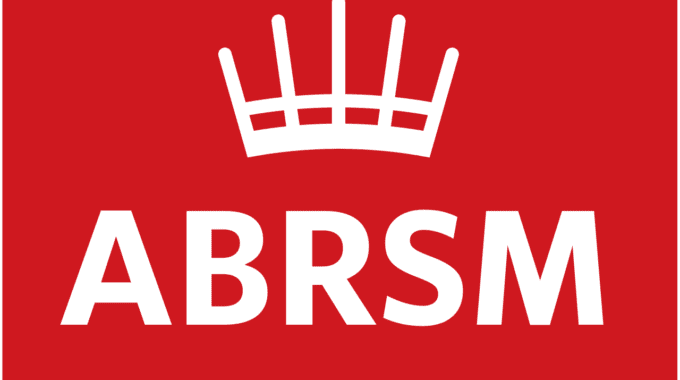The Conservatory is preparing students for optional exams. These exams are held by the Associated Board of the Royal Schools of Music (ABRSM), the world’s most popular music examination organization. These exams and assessments are designed to motivate students of all ages and levels, giving them a series of realistic goals and tangible rewards for their achievements. As you will read below, these exams are demanding and require commitment from the student.
ABRSM has announced the end of Practical Exams (face-to-face exams) in France. Students wishing to take a Practical Exam will have to book one in the UK. Since 2021, ABRSM offers Performance Exams, digital exams assessed from a video recording focusing on performance skills.
Why take an ABRSM exam?
Enjoyment through achievement’ is a phrase that sums up our philosophy, and earning an ABRSM certificate is a rewarding experience.
-abrsm.org
If you are working hard to make progress with your music, you need some way of recognizing your success and reassurance that you are on the right road. This is exactly what music exams offer:
- Motivation and inspiration, working from a carefully structured syllabus towards a definite goal
- A measure of personal progress and attainment against internationally recognized benchmarks
- An objective guide to improve your musical skills
- Assessment by a respected and independent musician who has been highly trained and is constantly monitored
- Performance opportunities and a real sense of achievement
ABRSM has given structure and support and set standards for over a hundred years. During that time, much has been tried, tested, and consolidated. We use that wealth of experience for the benefit and guidance of the many hundreds of thousands who regularly take the grades, knowing that they are part of the most respected and valued system of music exams in the world.
Bear in mind…
Music exams do not suit everyone, and exam syllabuses are not intended to provide a complete curriculum or repertoire choice to exclude all other music. All performers should explore a wide range of music to stimulate their interest and refresh their outlook!
What are the components of a Performance Exam?
Performance Grades are digital exams. They have the same value as the practical grades, but their focus is on performance and interpretation.
ABRSM-performance grade music exams consist of the following:
4 Pieces or songs (marked each out of 30):
Three pieces must be chosen from the current syllabus. The fourth may be chosen from the current ABRSM syllabus or from an older ABRSM syllabus, but it can also be any piece of a similar level. The set of 4 pieces must be recorded in a continuous, unedited performance.
Performance as a whole (marked out of 30):
This will grade the ability of the candidate to deliver a contrasted, coherent, and convincing performance rather than a set of individual pieces.
Total marks in all individual Performance exams are 150.
- 100 marks are required to achieve a pass
- 120 marks are required to pass with merit
- 130 marks are required to pass with distinction
What are the components of a Practical Exam?
ABRSM-graded music exams usually consist of the following:
Pieces or songs (marked out of 30):
Scales and arpeggios (marked out of 21):
Aural tests (marked out of 18):
Sight-reading (marked out of 21):
Exam marks
Total marks in all individual Practical exams are 150.
- 100 marks are required to achieve a pass
- 120 marks are required to pass with merit
- 130 marks are required to pass with distinction
Exams at Grades 1-8 are provided for most of the instruments we offer.
Who are the examiners?
ABRSM’s team of over 600 examiners consists of respected musicians from every branch of the profession. It includes orchestral players, soloists, chamber music players, heads of school music departments, and professors from the Royal Schools of Music, many of whose names are well-known in the musical world.
The information about these exams is directly from abrsm.org. To know even more about the ABRSM exams, please visit their website. To pair this with the ABRSM Theory Lessons Online simply add this option on your sign-up form.

